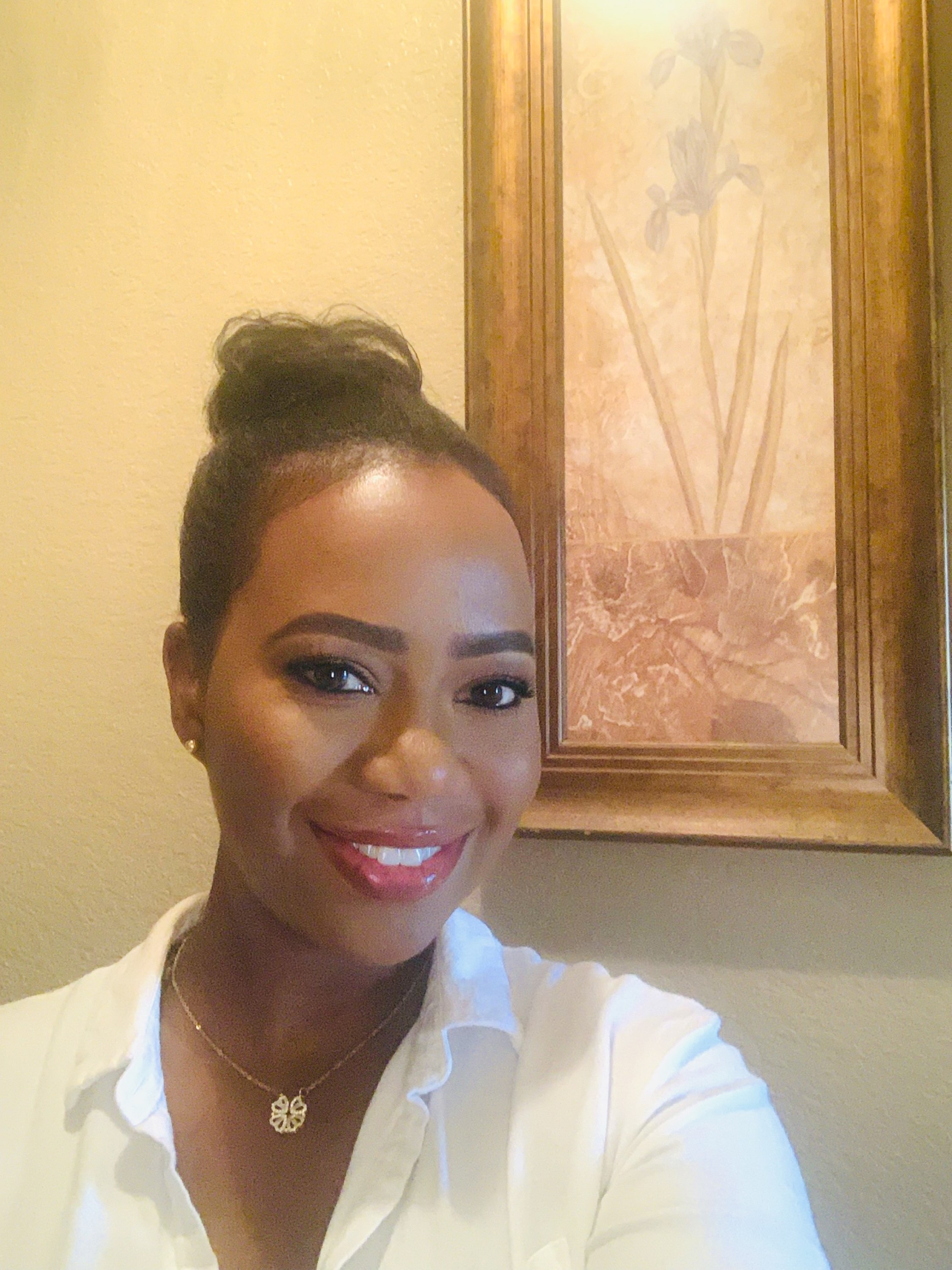6 hours ago5 min read



Updated: Oct 6, 2025

I am no stranger to burnout. My last career was the moment everything cracked—the kind of breaking point where your body whispers, but your mind keeps pushing until it screams.
Looking back now, I can see the warning signs were there all along. I just didn’t want to admit how bad things were getting.
I ignored the constant fatigue. I brushed off the mental fog. I pretended the irritability and emotional spirals were just “stress.” But the truth is, the burnout crept in slowly—then all at once. It wore me down, not just physically, but mentally, spiritually, and emotionally.
Eventually, I reached a point where I would cry almost every night, not because of one specific thing, but from the sheer weight of it all. That was a difficult time for me, and I kept it all inside. I never told a soul what I was going through.
If you’re reading this and any of it sounds familiar, my advice to you is this: please listen to your body.
After months of wrestling with the decision, I finally chose to leave that job. I walked away, scared and unsure—but it turned out to be one of the best decisions I’ve ever made—for my health, my peace, and my future.
And now, I want to share with you the signs I wish I had paid attention to sooner.
Burnout isn’t just being tired. It’s a prolonged state of physical, mental, and emotional exhaustion caused by ongoing stress, especially when you’re overworked and under-supported. And while it’s common in the workplace, burnout can happen in any area of life—parenting, caregiving, relationships, even self-imposed pressure to “keep it all together.”
Burnout isn’t weakness.It’s your body waving a red flag saying: You need to stop before you fall apart.
Let’s start with the obvious one—chronic fatigue. But here’s the thing: this isn’t just “I need a nap” tired. This is soul-deep tired. It’s waking up feeling like you didn’t sleep. It’s dragging yourself through the day on autopilot. Even on weekends or vacations, you still feel drained.
If rest doesn’t feel restorative anymore, it’s a sign something deeper is going on.
When you’re burnt out, your emotional capacity shrinks. The little things feel huge. You snap more easily, or you zone out altogether. Some days you may feel overstimulated by everything—and other days, you feel nothing at all.
If you’ve gone from being compassionate and engaged to cold, reactive, or detached, burnout could be stealing your joy—and your peace.
Whether it's your job, your kids, your partner, or your daily routine—burnout can make everything feel like an obligation. The things you used to find fulfilling now feel like chores.
You don’t feel present, and you definitely don’t feel inspired.
When burnout takes over, even your passions can feel like pressure.
Our bodies are always speaking, but under chronic stress, we stop listening. Burnout can compromise your immune system, making you more susceptible to colds, stomach issues, headaches, and body aches.
It’s not “all in your head.” It’s in your body, too.
Mental fog is real. You start forgetting things. You re-read the same paragraph three times. You struggle to make even small decisions.
Burnout clutters your mental space, leaving you scattered, unfocused, and overwhelmed by even simple tasks.
When you’re burnt out, socializing can feel like another job. You cancel plans. You don’t return texts. You pull away—not because you don’t care, but because you don’t have the energy to engage.
That loneliness can deepen the burnout cycle, making it even harder to climb out of.
This is one of the more subtle signs. You might still function—showing up at work, taking care of your family—but the motivation behind it is gone. You’re not driven, you’re just surviving.
You might stop exercising, eating well, or doing anything that used to help you feel balanced. It’s not laziness—it’s depletion.

Maybe you’ve thought, This is just how life is now.That sense of hopelessness, like nothing will ever get better and you just have to keep pushing, is one of the most painful signs of burnout. You start to believe that your needs don’t matter, or that there's no way out.
But let me tell you from experience—there is a way out.
Before burnout becomes full-blown, your body usually sends quiet signals—subtle but persistent signs that something isn’t right. But when you’re used to pushing through, it’s easy to dismiss them as “normal” or temporary.
Here are some common early physical signs of burnout that often get brushed off:
Frequent headaches – especially tension headaches that feel like a tight band around your forehead.
Muscle tension or pain – typically in your shoulders, neck, or back.
Digestive issues – bloating, nausea, or a constantly upset stomach with no clear cause.
Jaw clenching or teeth grinding – often noticed in the morning after a restless night.
Changes in appetite – either emotional eating or a complete loss of interest in food.
Poor sleep – either struggling to fall asleep, waking up in the middle of the night, or waking up still feeling tired.
These symptoms are often your nervous system sounding the alarm. Don’t wait for your body to completely shut down before you take action. Just because you can keep going doesn’t mean you should.
Sometimes we’re so deep in “survival mode” that we don’t realize how far we’ve drifted from balance. These simple but powerful questions can help you check in with yourself honestly:
When was the last time I felt rested—not just physically, but emotionally?
Do I feel more irritable or numb than usual lately?
Am I losing interest in things that once brought me joy or peace?
Is my body trying to get my attention with tension, fatigue, or pain?
Have I said “I’m fine” when I’m really not?
Do I feel like I have to keep it all together, even when I’m falling apart inside?
There are no right or wrong answers—but your honest responses can reveal what your body and mind may already know.
Burnout isn’t always loud. Sometimes, it’s the quiet disconnection from yourself that grows over time.
If you saw yourself in any of these, it’s not too late. Burnout recovery starts by acknowledging what’s going on and giving yourself permission to slow down—without guilt.
I know it’s not always possible to quit a job overnight or radically shift your responsibilities.
But what is possible is getting honest about what you’re carrying. Start with small changes: boundaries, breaks, and breathing room.
If this resonates with you, I also invite you to read “Becoming Unavailable for What Drains You—And Doing It Without Guilt”. It’s a reminder that protecting your peace is not selfish—it’s survival.
Once I acknowledged my burnout, I started making real changes. Here are a few that helped:
Daily check-ins – I asked myself, “What do I actually need today?”
Saying no – Even when it was uncomfortable. Especially when it was uncomfortable.
Nervous system resets – Walking, deep breathing, journaling. Little daily acts that helped calm the chaos.
Support – Talking to a coach, a friend, or a therapist. You don’t have to navigate burnout alone.
Burnout doesn’t mean you’re broken.It means you’ve been strong for too long without enough support. And while our culture glorifies the “doing it all” woman, your health—your joy—is not worth sacrificing.
You deserve a life where you don’t have to push through tears just to make it to Friday. A life where rest isn’t earned—it’s honored.
Take this as your sign to pause, check in, and choose yourself.You don’t have to wait until you’re falling apart to make a change.
See you at the next post ❤️
Follow us on Facebook at @everyherwellness and follow me at kim.ba0918 for more gentle guidance and real-life reminders.

Kimberly Ba, APFA-CHWC
Certified Health & Wellness Coach and Wellness Blogger, and the founder of EveryHER Wellness, a space dedicated to helping women find balance, protect their peace, and reconnect with what truly matters in everyday life.


Follow EveryHer Wellness and be part of a community that truly gets it.




Comments